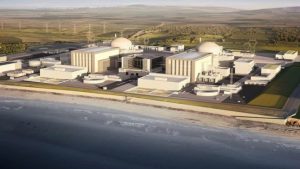Tensions between Australia and China have been on the rise as Australia declines offers of Chinese investment.
 Half of the state owned electricity company, Ausgrid, was previously made eligible for sale by the New South Wales government on a 99 year lease. China State Grid, as well as Hong-Kong based conglomerate Cheung Kong, offered the sum of US$7.7 (£5.9) billion for 50.4% of Ausgrid. The bid was initially placed on hold by Australian Treasurer Scott Morrison, a move which drew criticism from the Chinese.
Half of the state owned electricity company, Ausgrid, was previously made eligible for sale by the New South Wales government on a 99 year lease. China State Grid, as well as Hong-Kong based conglomerate Cheung Kong, offered the sum of US$7.7 (£5.9) billion for 50.4% of Ausgrid. The bid was initially placed on hold by Australian Treasurer Scott Morrison, a move which drew criticism from the Chinese.
After much deliberation this offer was officially rejected by Mr Morrison who said: ‘’I have decided that the acquisition by foreign investors under the current proposed structure of the lease of 50.4% of Ausgrid… would be contrary to the national interest’’. He later added that ‘’this is consistent with the recommendation of the Foreign Investment Review Board’’.
Last November Scott Morrison also blocked the sale of Kidman and Co, the world’s largest cattle farm, to a Chinese investor. The offer was, once again, rejected on the grounds of national security and national interest.
 The Chinese have also found themselves at loggerheads with the United Kingdom. Chinese investors were set to finance a third of the $23.6 (£18) billion project, Hinkley Point C nuclear power station but Prime Minister Theresa May delayed approval following concerns around China’s stake in the project.
The Chinese have also found themselves at loggerheads with the United Kingdom. Chinese investors were set to finance a third of the $23.6 (£18) billion project, Hinkley Point C nuclear power station but Prime Minister Theresa May delayed approval following concerns around China’s stake in the project.
Nick Timothy, previously the Prime Minister’s joint chief of staff, stated that “security experts… are worried that the Chinese could use their role to build weaknesses into computer systems which will allow them to shut down Britain’s energy production at will…’’. The delay, and the attitude of the UK Government, was condemned by China’s ambassador to the UK, who warned that this would be a ‘’crucial historical juncture’’.




 Print
Print Email
Email